What are the Best Fruits & Vegetables You Can Grow in Arizona?
Finding the best fruits and vegetables to grow in Arizona was not as easy as I thought. Some require extensive care, others are prone to pests, and lots are just not simple & quick enough to grow.
That’s why I created a list of the 10 BEST Fruits & Vegetables You Can Grow in Arizona!
This ultimate guide will give you the best fruits and vegetables to grow, why you should grow them, and even how to grow them.
Read THIS Before Growing Fruits & Vegetables in Arizona
Knowing what hardiness zone you live in is critical to understanding the best fruits and vegetables that can be grown.
It can be the difference between your fruit and vegetables thriving and providing a bountiful yield or producing nothing and maybe even dying.
If you want to know what hardiness zone you live in review the map below:
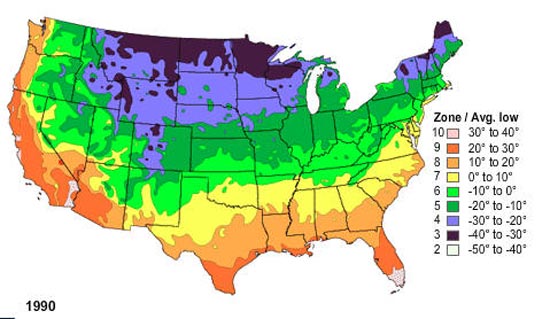
10 Best Fruits & Vegetables to Grow in Arizona
#1. Apple Tree
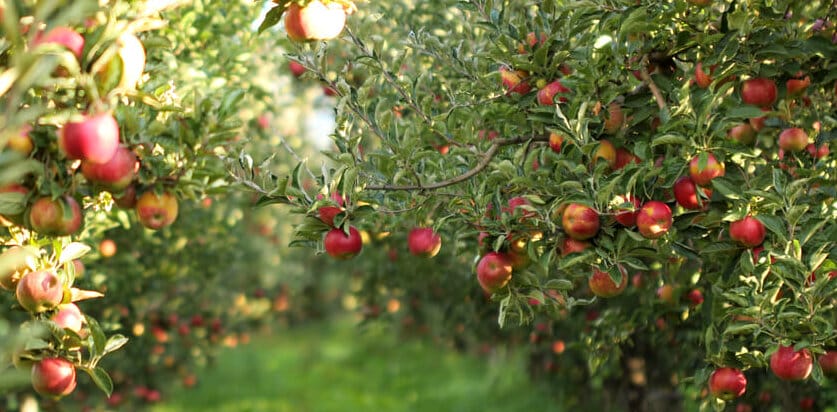
Popular Varieties: Golden Delicious, Red Delicious, Granny
Why Grow Apple Trees in Arizona?
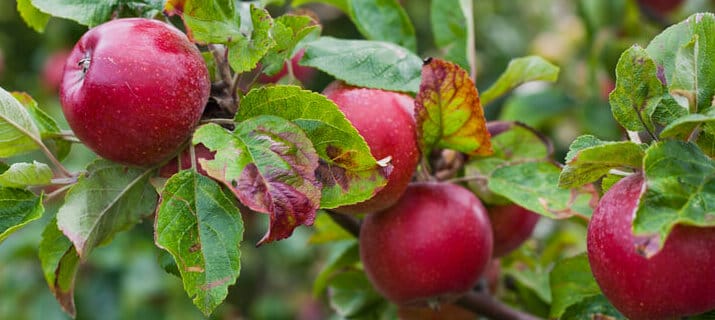
Cold Hardy:
- Apple Trees thrive in cold spring and cooler fall months. Unlike other fruits, flowers and fruit can grow even when there is snow or frost late into the spring.
Easy to Grow:
- Apple trees may be the easiest fruit to grow. You do not need to fertilize it, don’t need to water it, can be planted in any soil, and needs very little pruning if any.
Perfect for ANY Property:
- Apple Trees are perfect for any gardener’s yard meaning it’s perfect for a small or large garden.
Heavy Harvest:
- Out of all the fruit trees on this list, apple trees have one of the heaviest harvests. Between late August through November, you can pick more apples than you’ll be able to eat.
THESE Could Harm Your Apple Trees
Pests:
- Deer, Rabbits, & Squirrels LOVE Apple Trees. If left unprotected these pests will eat your fruit before it can even fully grow.
Insects:
- Out of all the fruit trees on this list, insects are most likely to attack apple trees. Whether it’s Japanese Beetles or Aphids, you will constantly have to spray and care for your apple tree to prevent insect infestation
Disease:
- Again, out of all the fruit trees on this list, Apple Trees are the most prone to disease. Blight & mold are just two of the diseases that can attack, harm, and sometimes kill your fruit trees in the spring or summer.
Additional Resources
Learn How To Grow Apple Trees HERE
#2. Lettuce
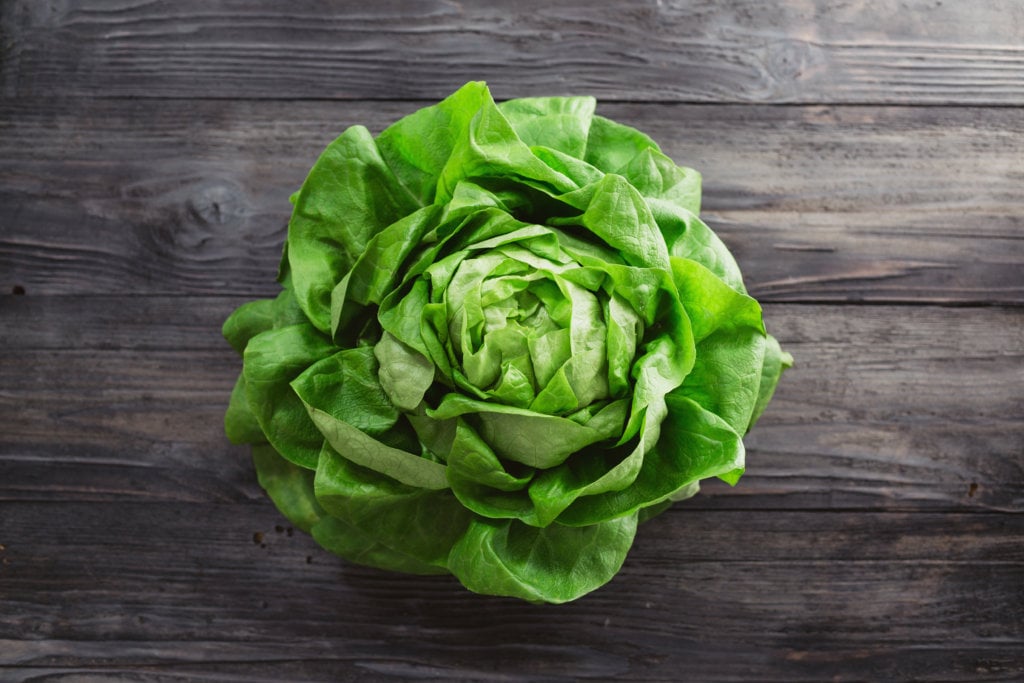
Popular Varieties: Butterhead, Boston, Loose Leaf
Why Grow Lettuce in Arizona?
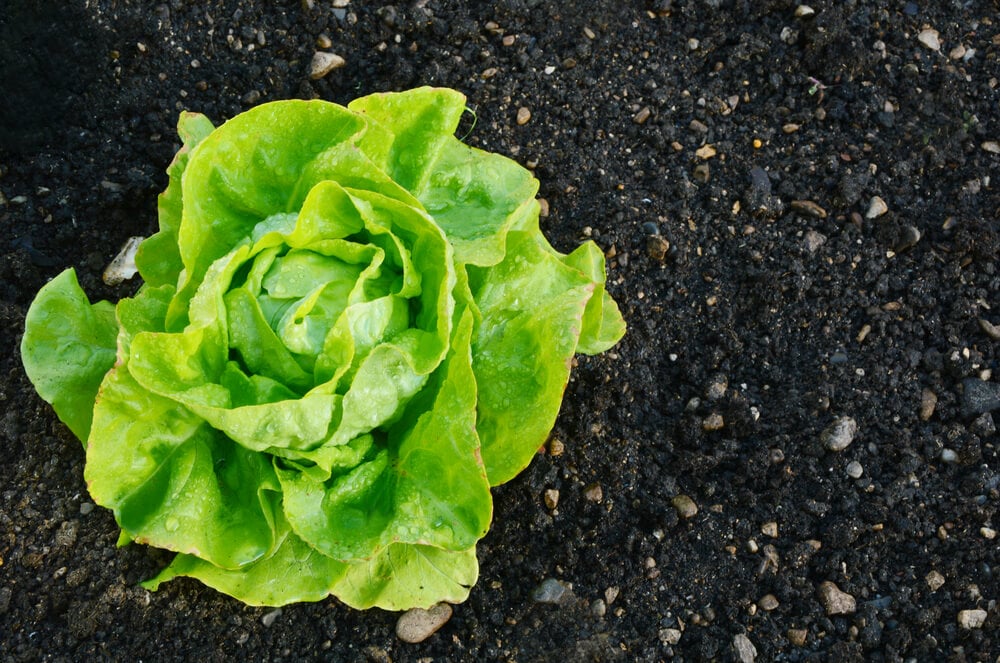
Cold Hardy:
- Lettuce thrives in the cold spring and cooler fall months. Unlike other vegetables, this plant can grow even when there is snow or frost on the ground.
Low-Maintenance:
- Lettuce may be the easiest vegetable to grow. You do not need to fertilize it, only need to water it once a week, and it can be planted in any soil.
Harvested All Year:
- Lettuce can be harvested all year. The more you harvest lettuce the more it will grow.
THESE Could Harm Your Lettuce
Pests
- Deer, Rabbits, & Squirrels LOVE Lettuce. If left unprotected these pests will eat your vegetable before it can even grow.
Extreme Heat
- While rare, this can cause your lettuce to flower and become inedible. Make sure to plant your lettuce in partial shade to avoid this.
Additional Resources
Learn How To Grow Lettuce HERE
#3. Kale
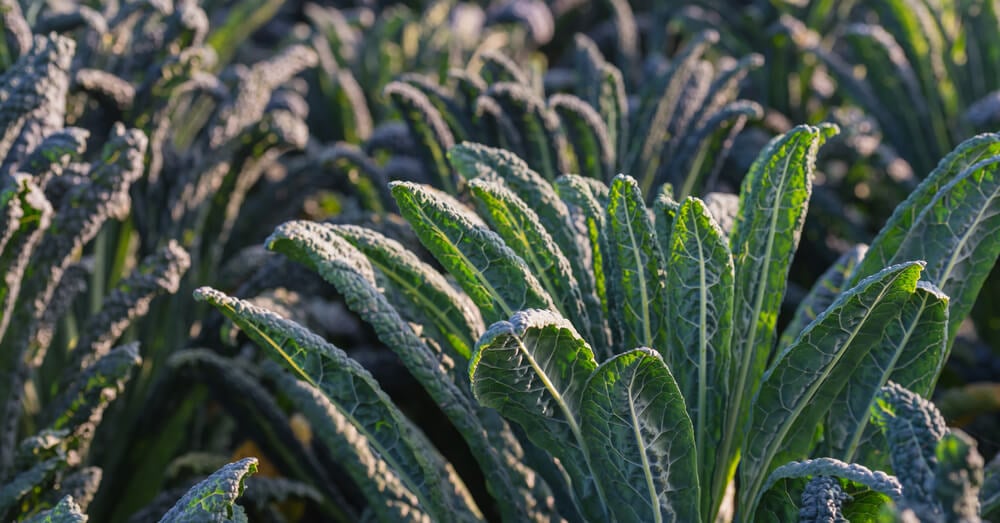
Popular Varieties: Curly, Lacinato, Red Russian, Ornamental
Why Grow Kale in Arizona?
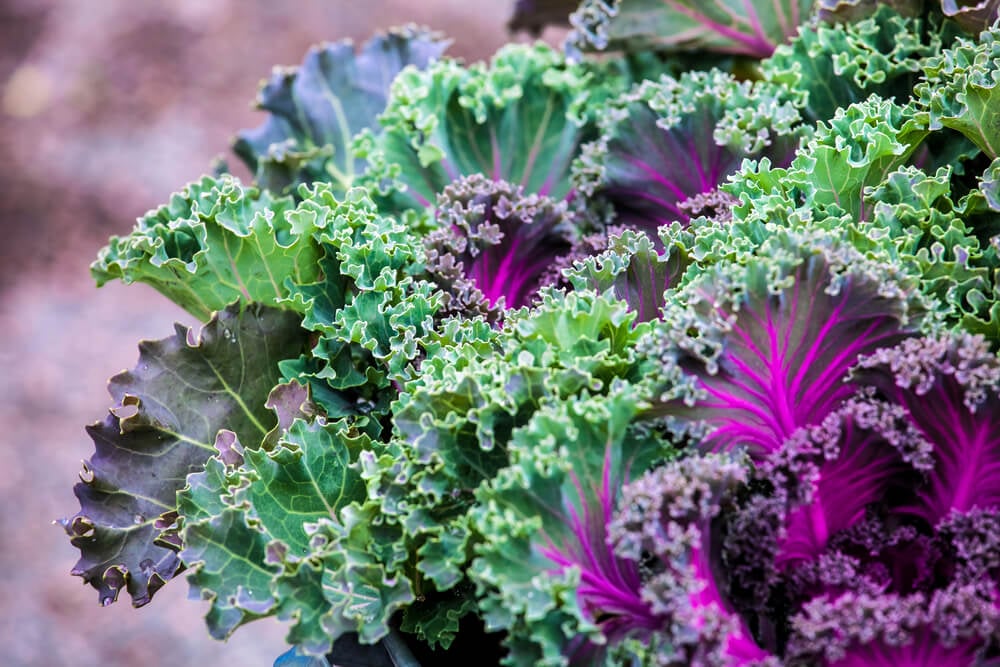
Cold Hardy:
- Kale is the hardiest vegetable when it comes to cold. Unlike any other vegetable on this list, Kale can be grown throughout the entire year.
Ornamental:
- Kale is the only vegetable on this list that can also be considered an ornamental plant. This means it can add color, features, and beauty to any type of garden.
Perfect for Pots:
- If there is any vegetable that can be grown in gardening pots, it’s Kale. This is one of the most adaptive vegetables, making it perfect for beginner gardeners.
THESE Could Harm Your Kale
Aphids:
- Like many other vegetables, aphids are one insect you don’t want. Aphids are especially prevalent and can stunt or kill your kale.
Extreme Heat:
- Like lettuce Kale does not tolerate extreme heat. After just a week in temperatures over 90 degrees, Fahrenheit and direct sunlight Kale can flower and become inedible.
Additional Resources
Learn How To Grow Kale HERE
#4. Blueberries

Popular Varieties: Bluejay, Bluecrop, Duke, Pink Icing
Why Grow Blueberries in Arizona?

Cold Hardy:
- Blueberry bushes thrive in cold spring and cooler fall months. Unlike other fruits, flowers and berries can grow even when there is snow or frost late into the spring.
Fast Growing:
- Blueberries may be one of the quickest berry bushes to grow. With just a little peat moss and fertilizer you can expect your bush to grow to 6 feet tall in just several years and bare more berries than you know what to do with.
THESE Could Harm Your Blueberries
Insects:
- Blueberry bushes are prone to diseases. Mold and root rot are just two of the diseases that can harm, attack, and kill your blueberry bushes in winter and spring.
Additional Resources
Learn How To Grow Blueberries HERE
#5. Fig
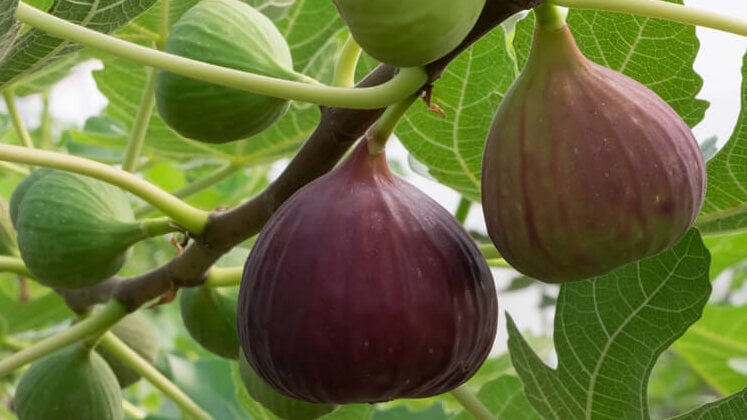
Popular Varieties: Chicago, Turkey, Brown
Why Grow Figs in Arizona?
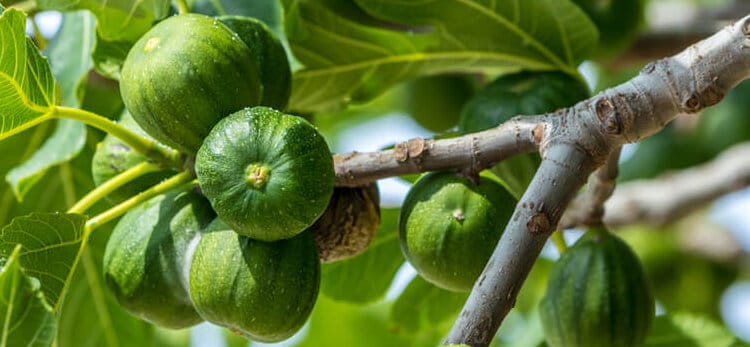
Pest-Resistant:
- The fig tree is the only fruit tree on this list that is truly pest-resistant. Deers hate fig trees, rabbits can’t reach the fruit, and squirrels and chipmunks find easier food elsewhere.
Perfect for Indoors & Outdoors:
- No other fruit on this list can be grown indoors and outdoors. Fig Trees can thrive outside, but most gardeners will grow them in a pot where they leave them outside during the summer months and bring them inside after the first frost of the year.
Easy to Grow:
- Once you plant your fig tree in a gardening pot there is nothing else you need to do. You don’t have to worry about insects or disease, only need to water it once a week, and you even don’t have to worry about pruning it for figs to grow.
THESE Could Harm Your Figs
Cold:
- While some types of fig trees can survive and do well in winter, most will become stunted and not produce fruit or may even die.
Drought:
- If you keep your fig trees in pots droughts will stunt and kill your tree. This is because fig trees in pots will dry out quicker than in the ground.
Additional Resources
Learn How to Prune Fig Trees HERE.
#6. Tomatoes
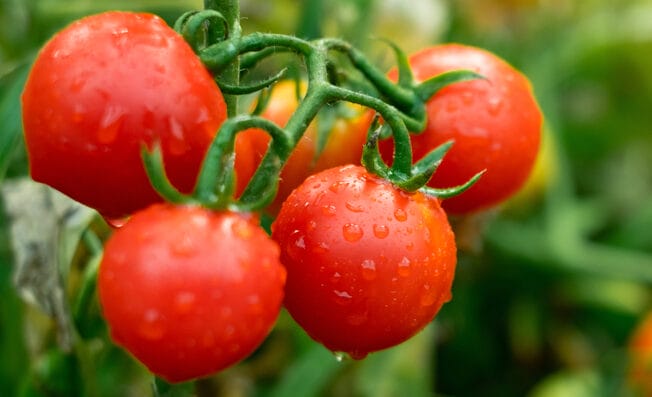
Popular Varieties: Cherry, Beefsteak, Brandywine
Why Grow Tomatoes in Arizona?
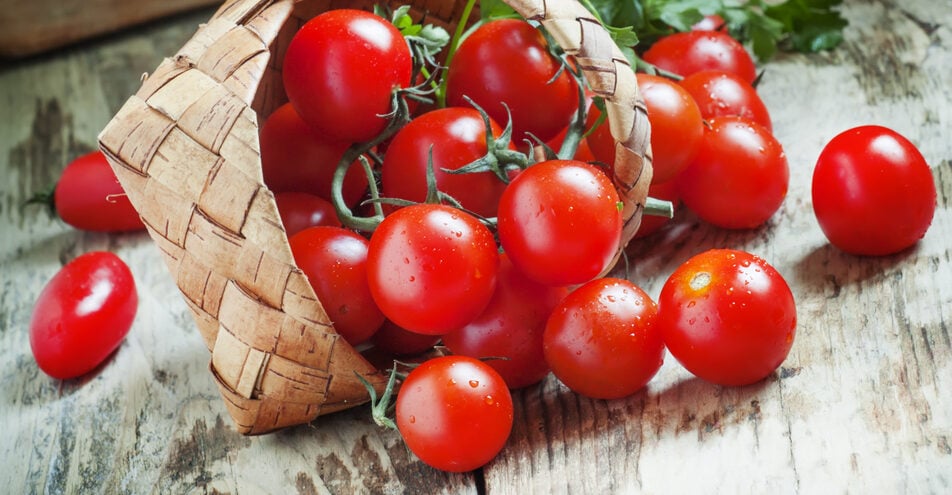
Thrives in the heat:
- As the summers get warmer tomatoes continue to get bigger and more plentiful. Look no further for a low-maintenance vegetable.
Great for Vertical Gardening:
- Tomatoes are considered a vine vegetable. Because of this, you can train them to grow vertically, which is perfect for gardeners who have little space.
Perfect for Small Space:
- Tomatoes are perfect for small spaces, meaning this makes them great for pots. Just plant them in a small pot and enjoy them in your urban and suburban properties.
THESE Could Harm Your Tomatoes
Insects:
- Tomatoes are one of the most insect-prone vegetables. Aphids, fruit worms, and even stinkbugs love eating them. If you wait too long to harvest expect all of these insects to become a problem.
Diseases:
- Tomatoes are also one of the most disease-prone vegetables, especially heirloom variants. Expect blight, fungus, and buckeye rot to affect your plant in the later summer months (even if you properly care for them).
Additional Resources
Learn How to Grow Tomatoes HERE.
#7. Strawberries

Popular Varieties: Royal Sovereign, Albion, Rosie
Why Grow Strawberries in Arizona?

Thrives in the heat:
Great for Vertical Gardening & Gardening Pots:
Quick Growing:
THESE Could Harm Your Strawberries
Cold:
- Strawberries do not tolerate cold weather well. While some varieties can survive cold weather, most will die if the winter temperatures drop consistently below 10 degrees Fahrenheit. You should always layer hay, leaves, or burlap over them in the winter.
Diseases:
Additional Resources
When planting strawberries you should always protect them with fencing or bird net to protect the flowers and berries from birds, chipmunks, and squirrels.
#8. Peppers
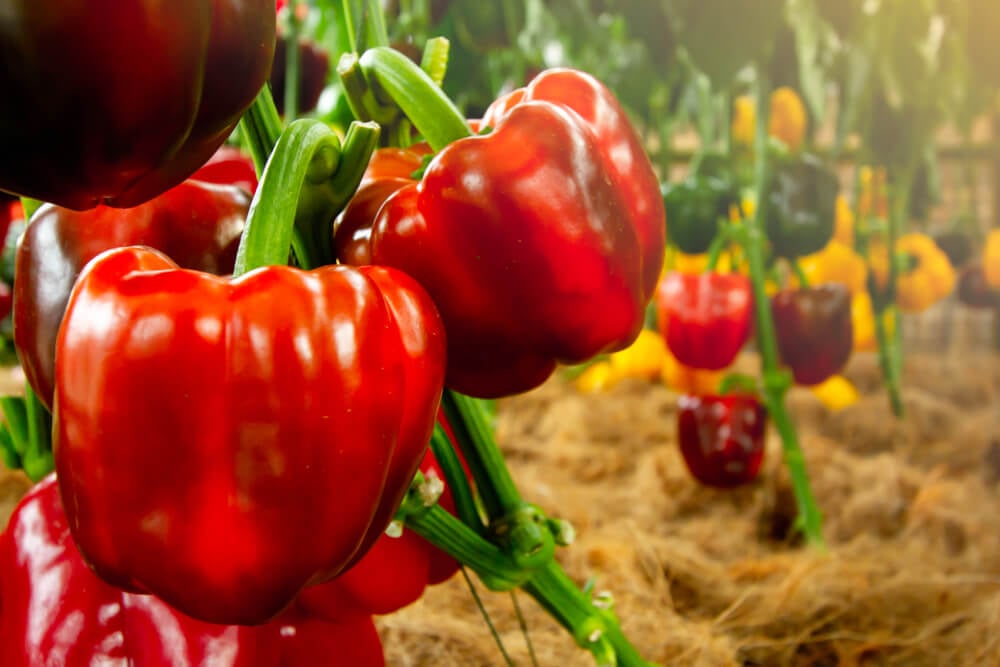
Popular Varieties: Bell, Jalapeno, Habanero
Why Grow Peppers in Arizona?
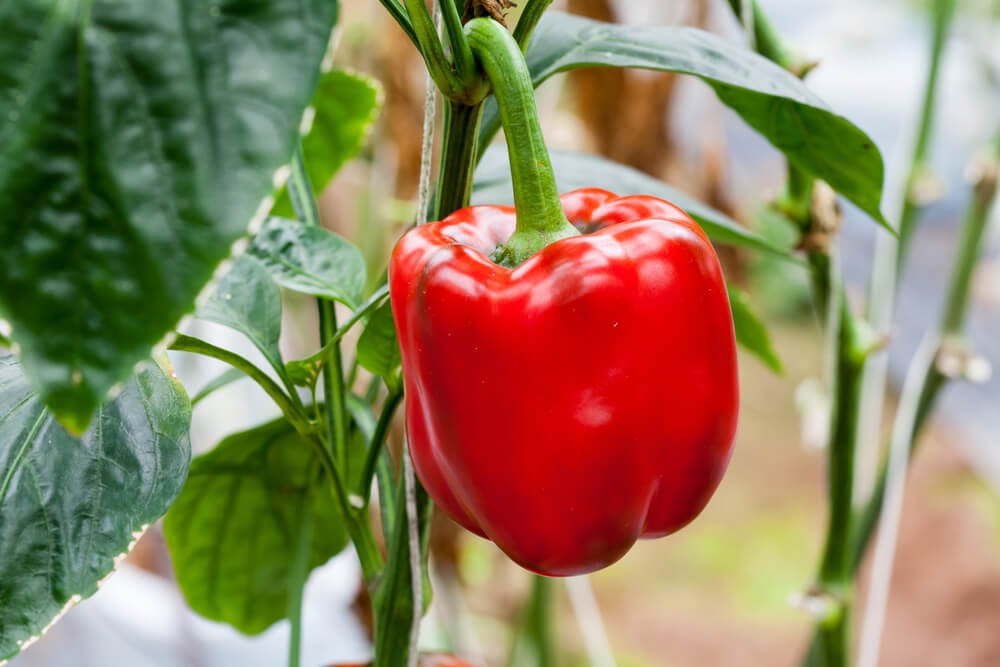
Loves Heat:
- These low-maintenance vegetables love the heat. The hotter the summer the better they do. And the longer summer goes on the more peppers you will have.
Vertical Gardening:
- Peppers are one of the vegetables you may not think of when it comes to vertical gardening, but they do just as great as others. This makes it perfect for small spaces and even in pots.
THESE Could Harm Your Pepper Plants
Cold:
- Pepper plants are like most plants on this list and cannot tolerate cold weather. If temperatures drop below 50 degrees Fahrenheit then your tree won’t grow or produce peppers. If temperatures drop below freezing your pepper plant will die.
Diseases:
- Peppers can be prone to diseases in late summer. Expect blight, fungus, and rot to affect your plant later in the season near the time you will harvest your peppers.
Additional Resources
Learn How to Grow Peppers HERE
#9. Squash

Popular Varieties: Pumpkins, Spaghetti Squash, Zucchini
Why Grow Squash in Arizona?
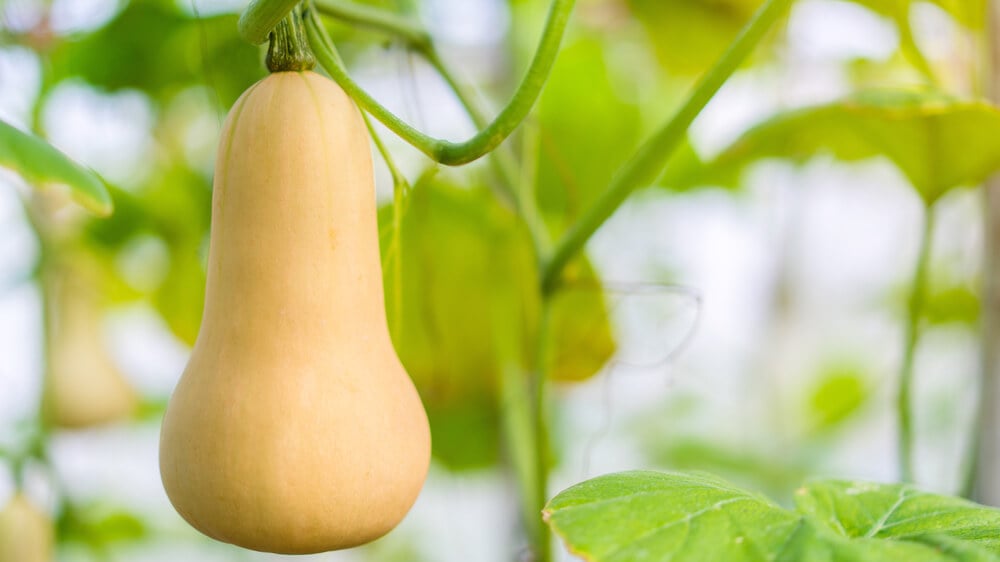
Thrives in Droughts:
- Unlike other vegetables, Squash does not require a lot of water to grow, flower, and bloom into a crop that can be harvested more than once. This is great for the unusually dry summers.
Great for Vertical Gardening:
- If you want a vegetable that grows up a pole then no look further than squash. Squash can spread horizontally very well, but also does well growing vertically.
THESE Could Harm Your Squash
Pests:
- Squash is another type of vegetable that does not do well with pests. Deer, Rabbits and other animals can eat flowers, leaves, and even stems of the plants.
Additional Resources
Learn How to Grow Squash HERE
#10. Lemon Tree
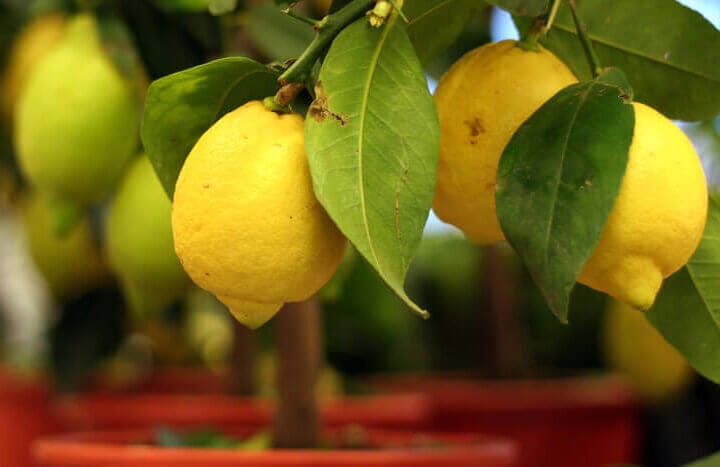
Popular Varieties: Meyer, Lisbon, Ponderosa
Why Grow Lemon Trees in Arizona?
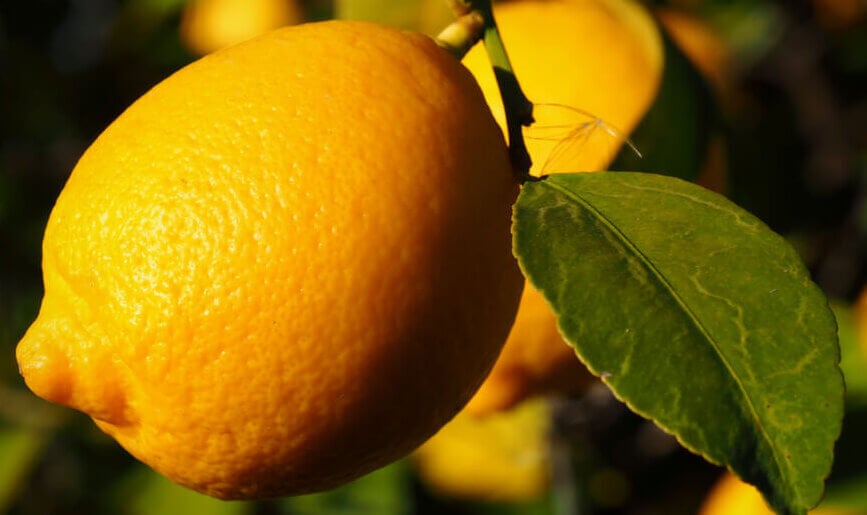
Loves Heat:
- Out of all the fruit trees on this list, lemons will thrive the most with heat. This is because they naturally have been grown in warmer weather climates. And best of all is that you need to water or care for them very little to have success.
Perfect for Pots:
- Lemon Trees can only grow in pots. If you want a fruit tree that can easily be moved from indoors to outdoors, kept indoors all year, or even just as an ornamental tree then look no further.
THESE Could Harm Your Lemon Tree
Cold:
Lemon trees are the most sensitive fruit tree on this list to cold weather. If temperatures drop below 50 degrees Fahrenheit then your tree won’t grow or produce fruit. If temperatures drop below freezing your lemon tree will die.
Additional Resources
Learn How to Grow Lemon Trees in Pots HERE
Common Growing Factors of Fruits & Vegetables in Arizona
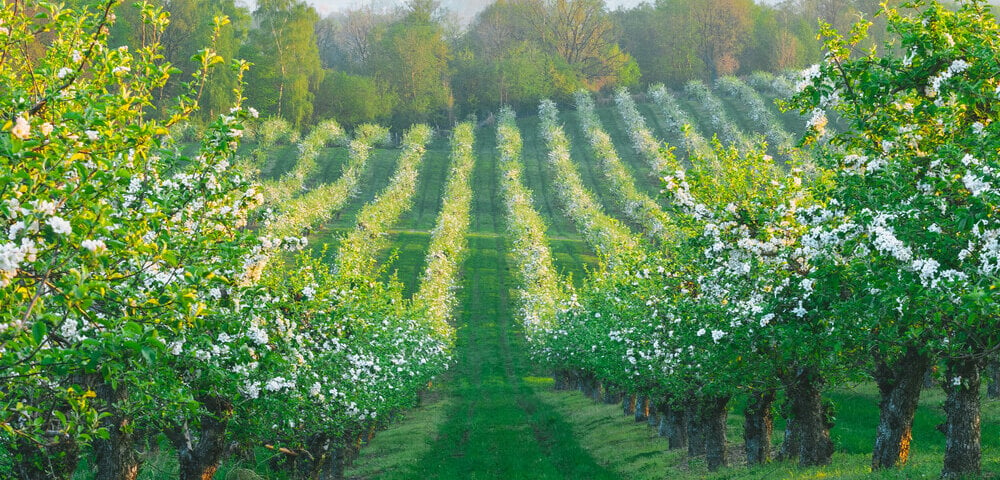
As a reminder, the below factors are common for the Best Fruits & Vegetables in Arizona:
- Thrives in Heat & Drought
- Thrives in Cold
- Can Grow Anywhere in your yard
- Hardy against Pests & Insects
- Require little maintenance
- Bear heavy fruit
